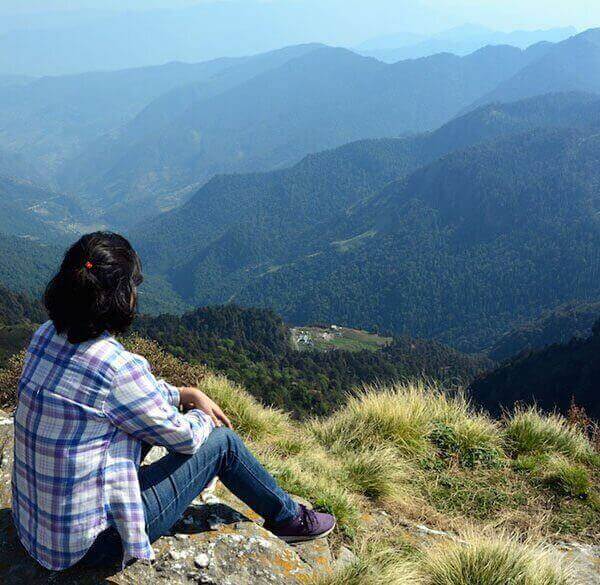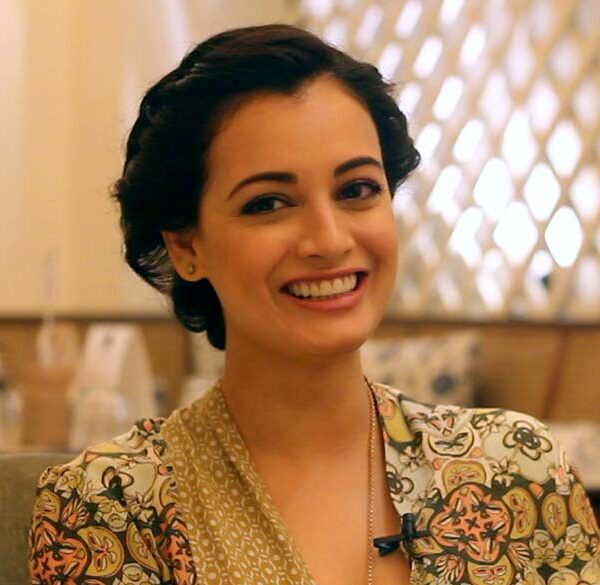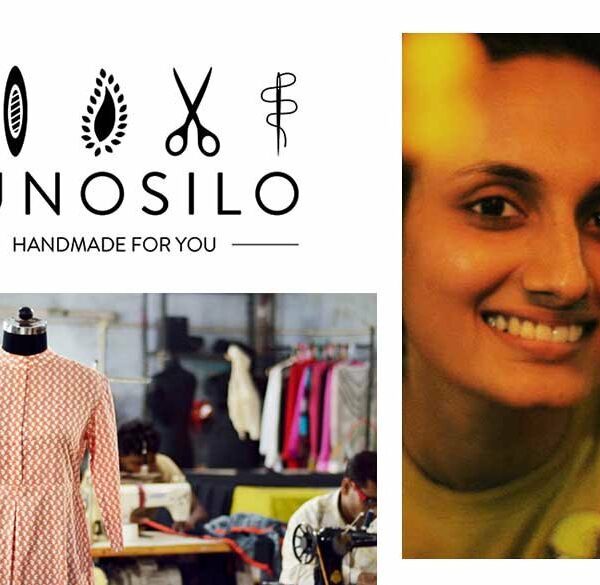Sewing New Futures in an organization aimed at empowering women involved in intergenerational prostitution, through alternative income generation programs and education. Today, with the help of this organization, they not only have a secured future but they also lead a respectable life on their own terms.
Feministaa interviews Kristin Braddock, who runs “Sewing New Futures” and works rigorously towards changing the lives of these women.
Helping the needy in a developing country sounds like a very challenging task. Being a foreigner, issues like language, gaining trust of the local women etc would have been quite challenging. Please talk about some of the biggest challenges that you faced while establishing Sewing New Futures.
There are definitely some challenges because I didn’t plan on starting a social enterprise. I originally came to India in 2010 after quitting a well paying job in corporate America for an unpaid job for anti-sex trafficking NGO. I planned to stay a year, learn some cool stuff, have some great stories and then go to law school back in America. But then in Fall 2011, I went on a field visit to the Perna community in Najafgarh where the NGO I worked with ran a centre for a “caste that practiced intergenerational prostitution”. We had an event for the kids that day to encourage education and literacy.
One of the women during the event grabbed my hand and invited me into her home for chai and I grabbed two of the staff members, to come with me to help me communicate. After we left, our staff members Priyanka and Monika, asked me to come back the next day and it turned out that they faced a lot of trouble working in the community but when they came with a foreigner the defences came down a bit and the women were happy to have them into their homes. Thus, I began a year of my life drinking chai, holding babies, looking at shaadi albums and helping the staff enrol women into Self Help Groups. Ironically, being an outsider helped me. That’s how I got to know about the Perna community.
I learned more about what actually happens to lead them into a life of prostitution. No one bought them and sold them per se. But, because of their scheduled caste status and for years of being treated like, “criminals” and “less than” in order to survive, they married their daughters at a young age (around 14), and after the birth of their first child, the in-laws/new husbands would drive them to more populated areas of Delhi (such as Uttam Nagar close by) where they would be forced to sleep with men for money. It was a cycle driven by the basic need to survive. Their clients were local Indian men and sometimes even local police. I heard stories of incredible violence.
Above all, I heard the women express again and again their desire other employment and how they wanted another life for their daughters. The men seemed to not care as long as the money was coming in from somewhere. The women all knew how to sew. They showed me homemade blankets and wall hangings. Although, flawed, I thought with guidance I could see people paying money back home for “handmade ideas” especially with the story behind the product. I begin working with a few women as a side project with the NGO and selling them back home to a friend’s store. When the NGO didn’t want to continue the income generation project, I quit. Priyanka and Monika also quit and together we formed Sewing New Futures.
I didn’t really realize what starting an organization, much less in another country really entailed. I just saw a need and said, “yes”. I didn’t save up enough money or waited until we had proper funding to start SNF. The biggest challenge has been where is that funding going to come from? There is always more we could be doing if we had more funds and it seems like we always are looking to raise more. It’s been such a struggle to get people to donate.
There’s a prevailing patriarchal thinking that dominates Indian mentality. What is your opinion on this prevailing issue? Do you find it surprising in the 21st Century?
Sadly, I don’t find it surprising. You don’t have to read the stats to know that gender inequality still exists. This kind of thinking permeates every part of life, from the mundane to the major. It can definitely be a challenge trying to navigate running a start-up in India as a foreign woman. I think that sometimes people take me less seriously because I am woman, and sometimes they doubt my knowledge and abilities.
India is a fascinating place because there are so many different cultures and traditions here that do favor men. That being said, patriarchal thinking is not unique to India. Every country around the world is struggling with this reality, including my home country of the United States. Even in the West, woman are at a disadvantage in many ways. It can be incredibly frustrating, and sometimes even dangerous. But we have to talk about this, acknowledge it, in order to try and move past it. Every day, I see people here, both men and women working hard to make positive changes towards destroying the patriarchy.
It really only takes one generation to change a lot of the patriarchal traditions and values that are found in India, and with a focus on education and equality, I really believe that we can make a real change.
Do you feel that the Government Of India has extended enough support for a venture like yours that aims at making rural women independent based on their skill?
The Government of India has some great schemes in place but they are confusing and hard to navigate. In a country as large and diverse as India, implementing any kind of program is incredibly challenging. The logistics of effectively delivering a program, especially in a traditional community that is facing many social barriers, are daunting. A program is only effective if it is accessible to the people it is trying to support, and I think that is where the Government of India falls short.
Do you feel prostitution in India should be legalized so as to make it into an organized sector?
This is a really tricky question that does not have a straightforward answer, because it depends on how you look at the issue. As a women’s organization, we are very careful about assuming that we understand another woman’s experience when we ourselves haven’t experienced it. While I might see prostitution as exploitation and feel that it cannot be legalized in a way that is safe and equitable for women, but I am not in a position to make that call. To tell a woman that she is being exploited, when she might not feel that way, is incredibly judgmental of me, and it’s not something we as an organization feel comfortable doing. Instead, we aim to provide an environment where women have a choice, because it is through choice that women find empowerment.
What are the biggest challenges that women working in the social sector face?
The challenges that women face while working in the social sector are almost the same as other areas. Being taken seriously, being seen as knowledgeable and dependable, and being seen as committed to your work are challenges all women in the workforce face. One issue that is a bit more specific to the social sector is the fact that this kind of work takes a lot of commitment and passion, and it is very difficult to do if you want to have a typical and comfortable life.
I think people often have a hard time understanding why I would devote my life to this cause, when it definitely comes with some personal sacrifices. I know my family would like to see me settled and in a more financially secure position. As a woman, there are expectations to get married and have children, and that is something which is very difficult when all of your time, money, and energy are being funneled into getting an NGO off the ground and running sustainably.
A developing country needs it’s youth population to actively contribute to the society. Sadly, the youth in India is not that motivated to do so. Can you speak about the great opportunities in this sector, encouraging the youth to join this sector and make a difference?
I’m not sure it’s fair to say that Indian youth aren’t motivated enough to actively contribute to make a positive change. Everywhere I go in India (and outside), I meet young people who are doing incredible things, and that are passionate about contributing to their society. Yes, it can sometimes be hard to get people to commit to helping, but this is not unique to youth, this is a challenge with every demographic. There is definitely room for growth in this area, and we as an organization would really love to tap into the powerful force that is India’s youth. We see a lot of opportunity to partner with young professionals who are experienced in their field, but also passionate about giving back.
Who inspires you? And how do you in-turn drive/motivate your employees?
My mother inspires me the most. She is the most caring person I know. Seeing her compassion towards others inspired me to chose to live my life they way I have and she has given me every opportunity to do that.
I try to motivate my employees by letting them know how valuable they are to our organization. I also try to delegate responsibilities. Sometimes, as a leader it’s really easy to just do things ourselves. Letting others manage new tasks can be really hard but telling your employees you have full faith in them does motivate them. Also, we have a lot of fun and we all truly believe in what we are doing!
What is the most inspiring thing that you have read till date? (A quote/book/poem)
“The Blue Sweater” By Jacqueline Novogratz
The Feministaa team thanks Ms Kristin Braddock for her valuable time and we wish her all the best for her future endeavours.












